Managing a behavioral health practice is no small feat, especially for clinical admins. Balancing schedules, processing documentation, and juggling billing tasks can feel like a full-time job in itself. Thankfully, with the right tools, things get a lot easier. Software, like that from Benji, can provide automation and efficiency for office managers and clinical administrators by combining electronic medical records (EMR) and revenue cycle management (RCM) into one automated platform. Following practical clinical admin tips for mental health software can make administration more effective, whether you’re new to using these tools or already rely on them daily.
Benji, a Hansei company, offers clinical EMR software for mental health administrators. Our enterprise software solution is tailored to the behavioral healthcare industry. Contact us today and learn how we can help you thrive in a complex industry.
Tips for clinical admins using mental health software
There are numerous ways that behavioral health software can improve your administrative efficiency. With Benji, you have a customizable and scalable software solution designed for the behavioral health industry’s unique demands.
Get the most out of scheduling features
Efficient scheduling is a must. Missed appointments or overlapping sessions create confusion and waste valuable time. Here’s how to make better use of your software’s scheduling tools.
Customize your scheduling view
- Use color coding for appointment types (e.g., therapy sessions, group meetings, cancellations).
- Set filters for specific clinicians or time slots to quickly locate openings.
- Enable recurring appointments to reduce extra manual entry.
Automate reminders
- Send email or SMS reminders to clients ahead of appointments. Look for software with built-in messaging tools.
- Schedule follow-up notifications after missed appointments. This improves attendance rates and keeps clients on track.
- Quick win: Creating personal templates for intake or standard sessions saves time, especially with repeat clients. You won’t need to enter identical details repeatedly.
Reduce data entry duplication
One of the biggest frustrations for clinical admins is redundant data entry. If you’re typing the same details multiple times, it’s a sign your current methods need tweaking.
Streamline your forms
- Use digital intake forms that flow directly into the client record. This eliminates the need to transcribe new client information.
- Pre-fill repeat fields whenever possible (such as patient demographics or insurance details).
Link systems
- Integrate your software with other tools, like billing platforms or telehealth apps, to ensure information flows seamlessly between systems.
- Some platforms, like Benji, simplify this process with built-in integrations specifically designed for behavioral health practices.
- Quick win: Check if your mental health software has a bulk upload feature. You can speed things up by uploading client data all at once instead of entering it individually.
Get a Personalized Walkthrough
Automate recurring tasks
Regular tasks like reminders, billing, or documentation can take up more time than they should. That’s where automation comes in.
Leverage task scheduling tools
- Automate billing cycles for recurring clients or group sessions.
- Set reminders for important deadlines, like treatment plan reviews or insurance updates.
Flag incomplete tasks
- Look for tools highlighting missing information, such as unsigned notes or skipped follow-ups.
- Use dashboards to display pending items at a glance. This keeps your team on track without extra emails or meetings.
- Quick win: Create alert systems for when documentation deadlines pass. A simple notification can save hours of backtracking.
Flag incomplete documentation
Incomplete or incorrect documentation isn’t just frustrating; it can compromise care quality and billing accuracy. Here’s how your software can help.
Audit as you go
- Many platforms include error-checking tools that flag missing fields or inconsistencies, like incorrect insurance numbers. Use these before finalizing documentation.
- Monitor overdue paperwork with reports that track pending documentation by clinician, team, or date.
Build workflows to minimize errors
- Create workflows that walk users through the required steps for each task. This ensures nothing gets overlooked.
- Use templates for notes or reports to provide structured guidance.
- Quick win: Before signing off on documents, use shortcuts like spell-check or auto-fill to polish up entries quickly.
Tips for onboarding new users
Training new users can feel overwhelming, but good onboarding pays off. With these quick tips, you can set both newbies and your team up for success.
Start with user-friendly software
Tools like Benji are designed with simplicity in mind. A clean interface helps new users focus on learning the most important features without feeling lost.
Provide role-based training
- Focus on what users need. For example:
- Clinicians should prioritize charting and treatment planning tools.
- Billing staff should know scheduling, invoicing, and insurance verification features.
- Admins should get a big-picture view of workflows.
Encourage questions
- Host Q&A sessions shortly after onboarding. This helps users troubleshoot real-world challenges they encounter after initial training.
- Quick win: Use training videos or quick-reference guides. These are perfect for busy admins who need to ramp up fast.
How Benji simplifies daily tasks
When tools are intuitive, they don’t just save you time; they make your day smoother. Benji thrives on being the go-to clinical EMR software for mental health teams, prioritizing admin usability.
- A clean, intuitive dashboard means fewer clicks to find what you need.
- Automations (like reminders and flagging incomplete data) free up time so that you can focus on more critical tasks.
- Integrations with telehealth, billing, and reporting tools reduce the need to jump between platforms.
With Benji, you gain flexibility and scalability, making it the ideal match for growing practices or streamlined teams. Whether you’re onboarding a new user or experiencing steady growth, Benji ensures your tools stay as efficient as your team.
Let Benji be your helpful sidekick in behavioral healthcare administration
Using clinical mental health software like Benji isn’t about doing more work—it’s about letting the right tools handle the tedious stuff. By automating tasks like scheduling, cutting down on duplicate data entry, and sending reminders, you can save time and focus on what really matters.
Benji is designed to help clinical admin teams work better with an easy-to-use interface and workflows that save time. It’s flexible, scalable, and ready to make a difference.
Want to learn more? Contact Benji at 888.670.6388 or online here. With Benji, it’s not just about upgrading—it’s about making life easier for your team and giving clients the best care possible.

